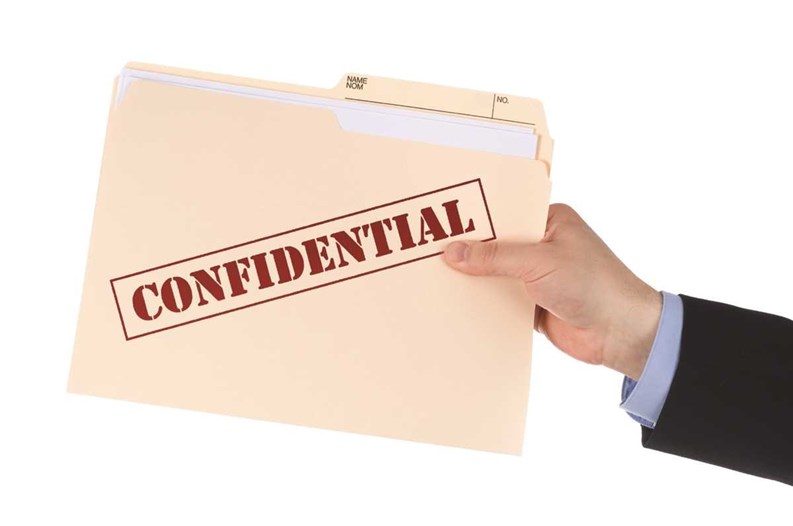While keeping the records of the association is not the most fascinating part of board membership, it is in some ways one of the most important. In fact, the flow of paperwork is the lifeblood of the community.
The association’s declaration, master deed and bylaws, and the co-op’s articles of incorporation and proprietary lease are the foundation of the business that is your typical co-op, condominium or homeowners’ association. The voluminous documents produced day to day are the records of its operation and the correspondence among the board, owners and management create the tenor of life within the community. Keeping documents and records tidy and communications responsible and transparent are key to running a functional and harmonious community.
The Letters of the Law
While the rules and regulations regarding producing and distributing the documents of an association are largely determined by the association itself in its declaration and bylaws, there are some that are laid out by State of Florida statute — Chapter 718 for condominiums, Chapter 720 for HOA’s and Chapter 719 for cooperatives.
The laws for each are virtually the same. According to attorney Kyle Egger of the Miami-based Nearing Law Firm, “Generally, they just say that all financial and accounting records must be maintained for at least a seven year period, and they’ve got to be accurate and itemized, applying accounting principles.”
By statute, an association must keep detailed records of all receipts and expenditures, and a periodic statement of the account for each owner, including all assessment information and monthly maintenance fee information. “That’s for the benefit of the members, so they can always get a quick accounting of their account,” explains Egger. Plus, the association must keep all tax returns, financial statements, contracts, agreements and a record of debts and liabilities. That’s so, “you can double check to make sure nobody’s self-dealing on the board,” he adds.
The Governing Documents
The most important document in the life of the community, subordinate only to Florida statute, is the condominium declaration, or covenants and restrictions in the case of HOAs, written by the developer at the community's inception. The declaration contains a detailed breakdown of the property, including engineering sketches and each owner's proportionate share of the property and portion of the monthly common expenses. It also describes the common areas of the complex.
The second record of importance are the bylaws, which lay out the rules for self-government of the association, including how the board directs its affairs, enforces policies and oversees upkeep and administration. The bylaws also cover such matters as requirements for meetings, voting, the manner in which the budget should be prepared, the determination and handling of assessments, and the filing of assessment liens and restrictions on the use of the units and the common areas.
Third in the hierarchy of governing documents are the rules and regulations, which are specific policies the board writes to administer and enforce the declaration and the bylaws.
“If, for example,” says Attorney Ramon C. Palacio, a partner with the Miami-based Association Law Group, PL, “the declaration provides that unit owners must refrain from excessive noise, then the association may wish to adopt reasonable rules regarding pool hours to ensure that people aren't in the pool after midnight, or whatever it deems best in its business judgment…”
This also allows them, he says, to enforce the declaration policy on excessive noise. “It is based on the underlying authority in the governing documents that provide that the owners may not become a nuisance to other owners.”
The rules and regulations are the most malleable of the documents of the association. While bylaws take a super-majority of the association members to be amended, the rules can generally be rewritten by a simple majority of board members.
All in This Together
For the most part, all owners have the same access to records as board members. “A board member is simply a unit owner who has been elected to guide the operations of the association,” says Palacio. “So records that are available to directors are available to all unit owners.”
There are some exceptions—some “privileged” data that only board members can see. “What is exempted are attorney-client privileged material,” explains Palacio, “as well as personal information obtained about someone in connection with a sale or sublet of the unit.” That includes any information obtained as the result of a background check.
And there are exceptions to the exceptions. Board members are only privy to personal information on an application for the sale or lease of a unit on a need-to-know basis. The board’s access to the personal data should end when the decision on the application is made.
Don’t forget to shred all corresponding documentation when it’s no longer needs, as to prevent it from getting in the wrong hands and causing an invasion of privacy issue, the experts urge.
Access to the Records
Aside from privileged information, all the records of the corporation must be available for inspection and copying by all association members within 10 days of a written request. “You can charge a reasonable amount, or say ‘you’re free to come copy them yourself at your own cost,’ ” says Eggers. “Generally most management companies will handle records requests, just because board members don’t want to respond to these kinds of things.”
Except for smaller, self-managed associations, most properties store their records at the management company’s office. The Florida Condominium Act requires they be kept within 45 miles of the property.
Second Set of Books
It’s good practice to have a second set of all the records of the corporation in a safe place at the building, experts say, because it facilitates ready reference and review.
Among the very few documents Florida statute requires the association to issue to the community, foremost is the annual financial statement, the depth of which varies according to the size of the community.
According to Eric Glazer, a founding partner with Glazer & Associates, P.A. in Hollywood, Florida, who offers mandatory board certification instruction, associations with revenues of more than $400,000 a year must provide their members with an extensive year-end audited financial report; associations with $200,000-$400,000 in revenue must produce a review, which is not as thorough as an audit; from $100,000 to $200,000, a compilation; and associations of less than 75 units or with less than $100,000 in revenue just have to report cash receipts and expenditures. A property with less than 50 units need only report cash receipts and expenditures regardless of annual revenue.
The only other document the board has to issue members is an annual report on the level of the reserves.
The board doesn’t have to mail the year-end reports to members, just let them know they are available. In fact, there are only two types of documents the board is required to put in the mail: a notice of the annual meeting at least 60 days in advance and a second notice 14 days prior, and notices of any meeting where assessments will be discussed, at least 14 days in advance. Notices of regular board meetings, which are open to all association members, need only be posted on the property, at least 48 hours in advance.
Sharing the Minutes
Associations must by law produce and keep in the records of the corporation the minutes of all meetings of the directors and members. The details of this law are spelled out in Florida Statutes 720.303 (3), explains Ben Solomon, Esq., a senior partner at the Miami-based Association Law Group, PL.
“Minutes of all meetings of the members of an association and of the board of directors of an association must be maintained in written form or in another form that can be converted into written form within a reasonable time,” the statute says. “A vote or abstention from voting on each matter voted upon for each director present at a board meeting must be recorded in the minutes.”
The next section of Florida statutes 720.303 (4) (f) also requires that associations maintain the minutes of all meetings of board directors and members “for at least 7 years.” The minutes are considered the “official records” of the association. Similarly, Florida Statutes Chapter 718 governs condominium associations, and contains similar provisions requiring minutes to be maintained for a period of seven years, Solomon says.
Privileged discussion such as information about litigation should never be included in minutes, experts say. Everything else, however, is open for owners’ consumption.
Board members can request access to records of meeting minutes by submitting a written request, according to Jacqueline C. Marzan, Esq., a senior attorney with the Jay Steven Levine Law Group in Boca Raton. Records must be provided within five working days after the board or the manager receives the request. Florida statute requires homeowners and condominium associations provide access within 10 working days. Failure to comply could lead to a fine of up to $50 per day for up to 10 days, she notes.
Reach Out to the Community
In the most functional communities, boards communicate regularly about issues before them or to draw attention to rules and regulations. Beyond fostering an atmosphere of transparency, regular newsletters or mass emails on specific topics prepare members for any new actions the board is considering, like the enforcement of rules on the books about which previous boards have been lax.
“Occasionally an owner who receives a letter stating that they are in violation of some rules and regulations may feel they are being singled out,” says Palacio. “But if in a newsletter you mention, for example, that there are dogs running loose in the association and the board is working to address that, then somebody who gets a letter like that knows they are not being singled out individually.”
The Role of the Manager
The extent to which the board relies on management to produce reports is laid out in the management contract. Buildings large enough to afford full-service management typically have them provide a monthly report in advance of board meetings detailing the month’s activities and providing background on issues on the agenda.
The monthly report generally includes a financial section with information about both accounts payable and receivable, as well as documentation like bank statements. The report essentially summarizes where the property’s finances stand for that particular month.
The report should also contain any correspondence from and sent out to shareholders, background information on any issues the board intends to discuss and proposals from contractors for any projects that are being considered.
The pros recommend boards have management keep a record of every correspondence, including every email that is received and their response. Documentation of any actions taken such as repair work or reports on a mediation between shareholders in a dispute should be saved too.
Keeping Organized
Storing all building documentation is not only legally required, it holds associations accountable for all decisions made—from financial to legal. However, this best practice of storing all records can turn a board’s office into a scene straight out of “Hoarders.”
To avoid drowning in a sea of paperwork, the board can have management scan everything. Digitizing files makes them easy to reference and electronic records are easily transported from the management office to a building’s computer hard drives.
Steven Cutler is a freelance writer and a frequent contributor to The South Florida Cooperator. Editorial assistant Enjolie Esteve contributed to this article.







4 Comments
Leave a Comment